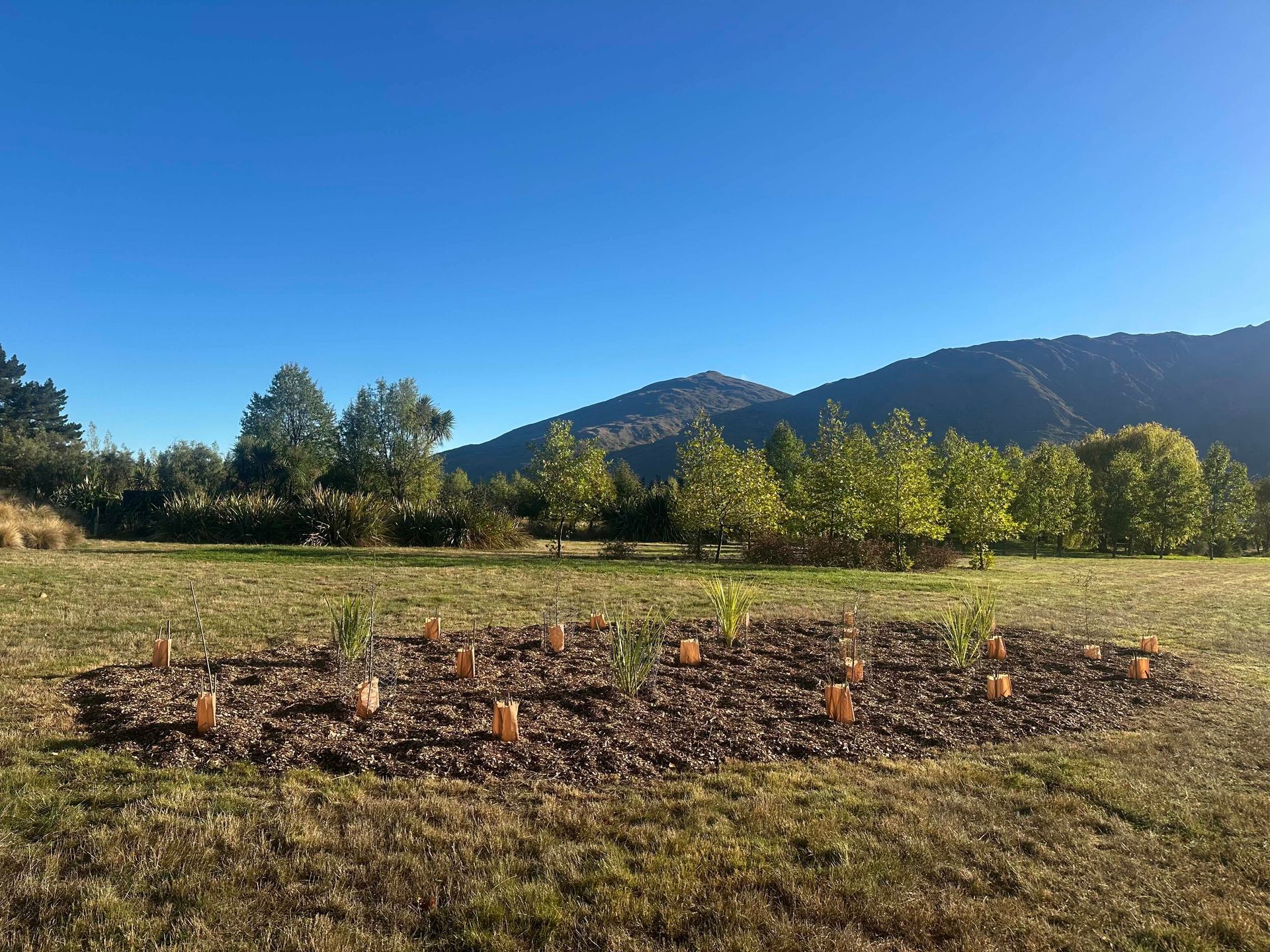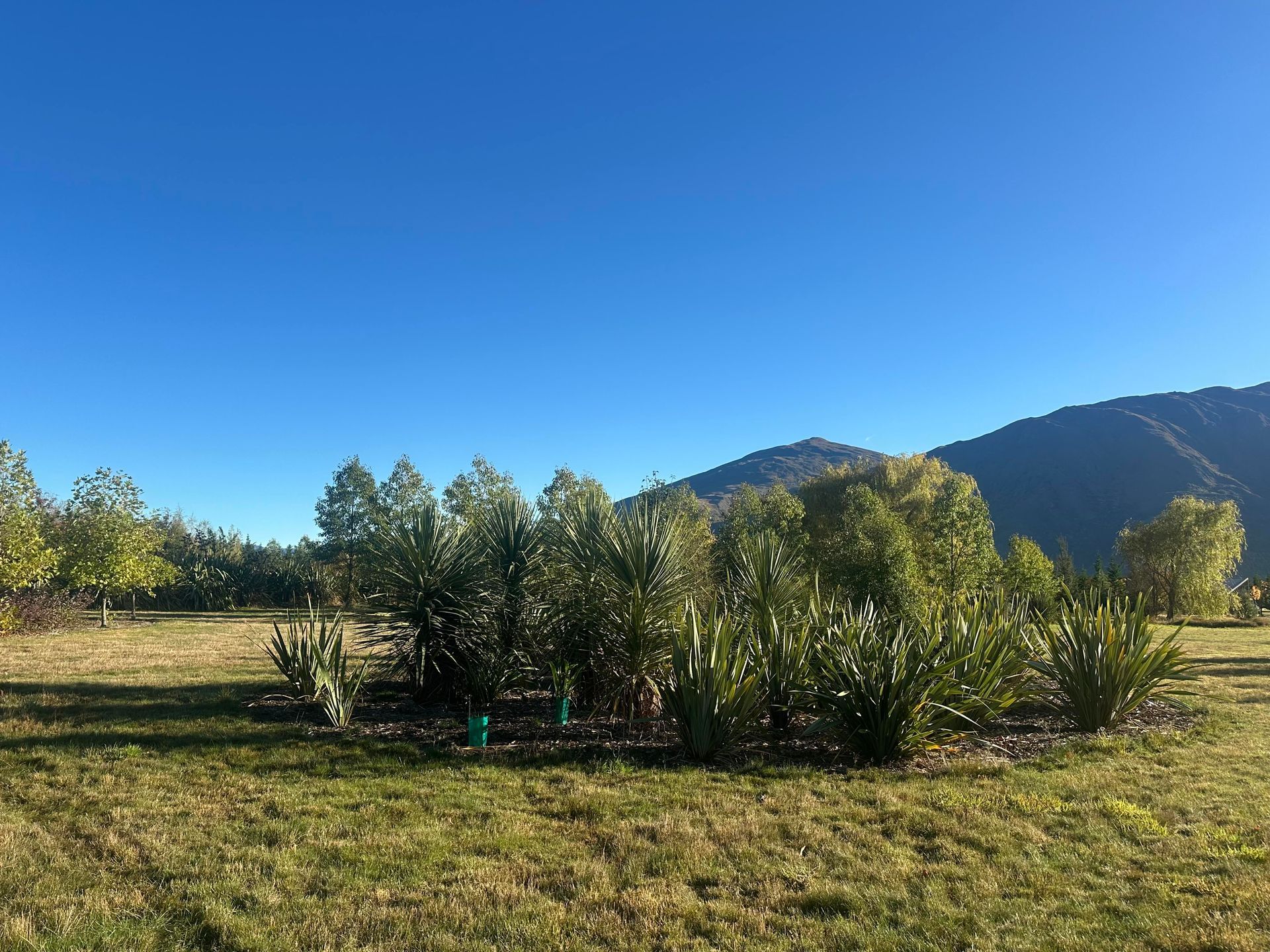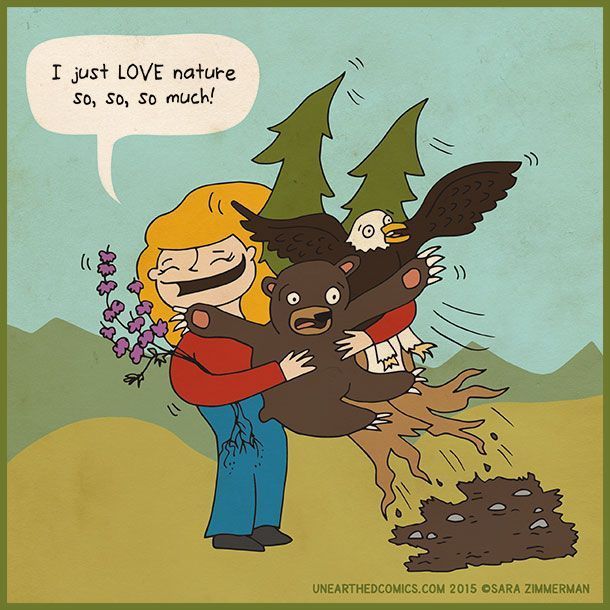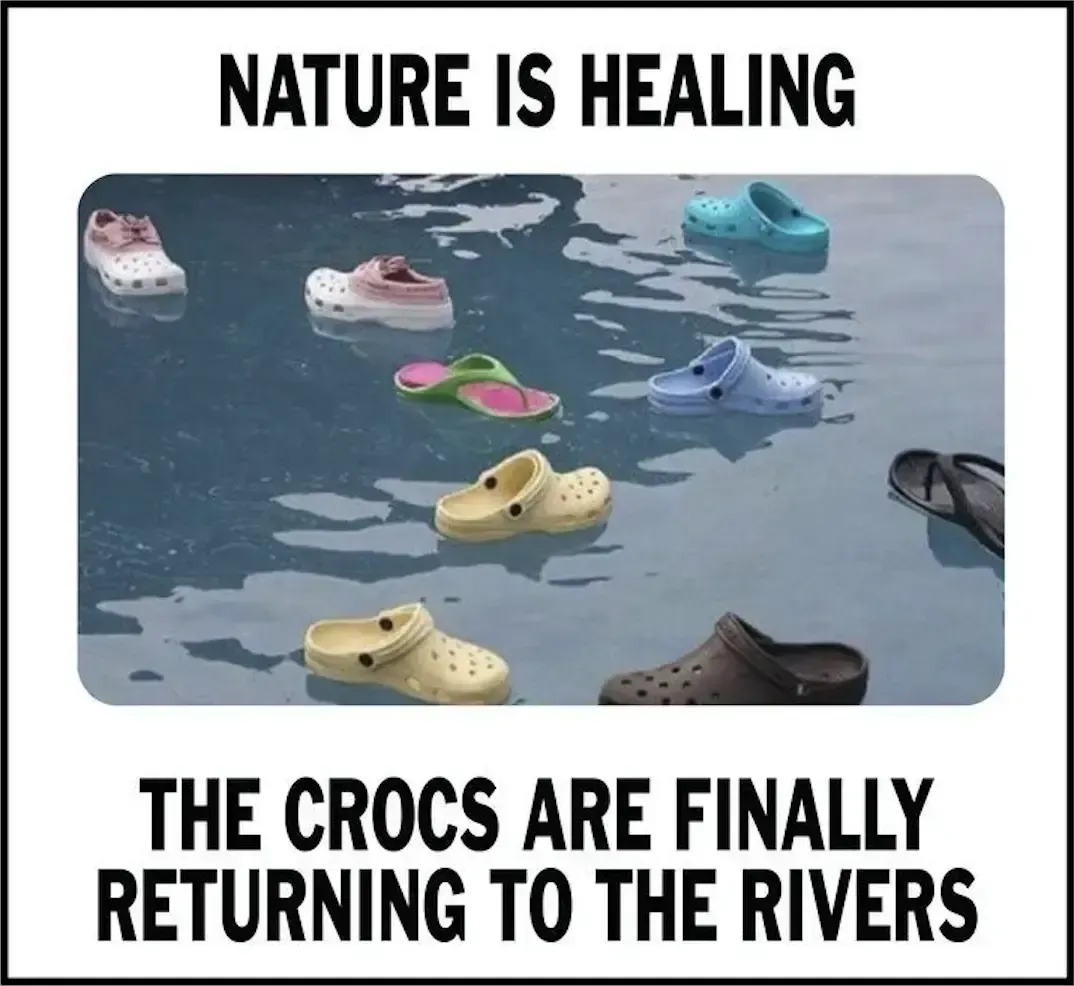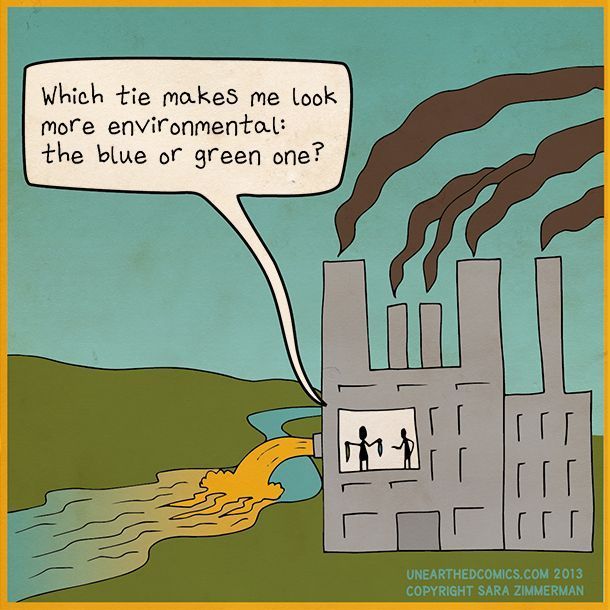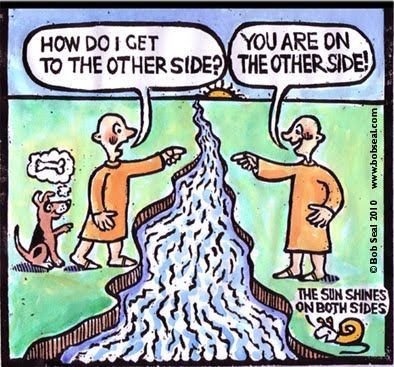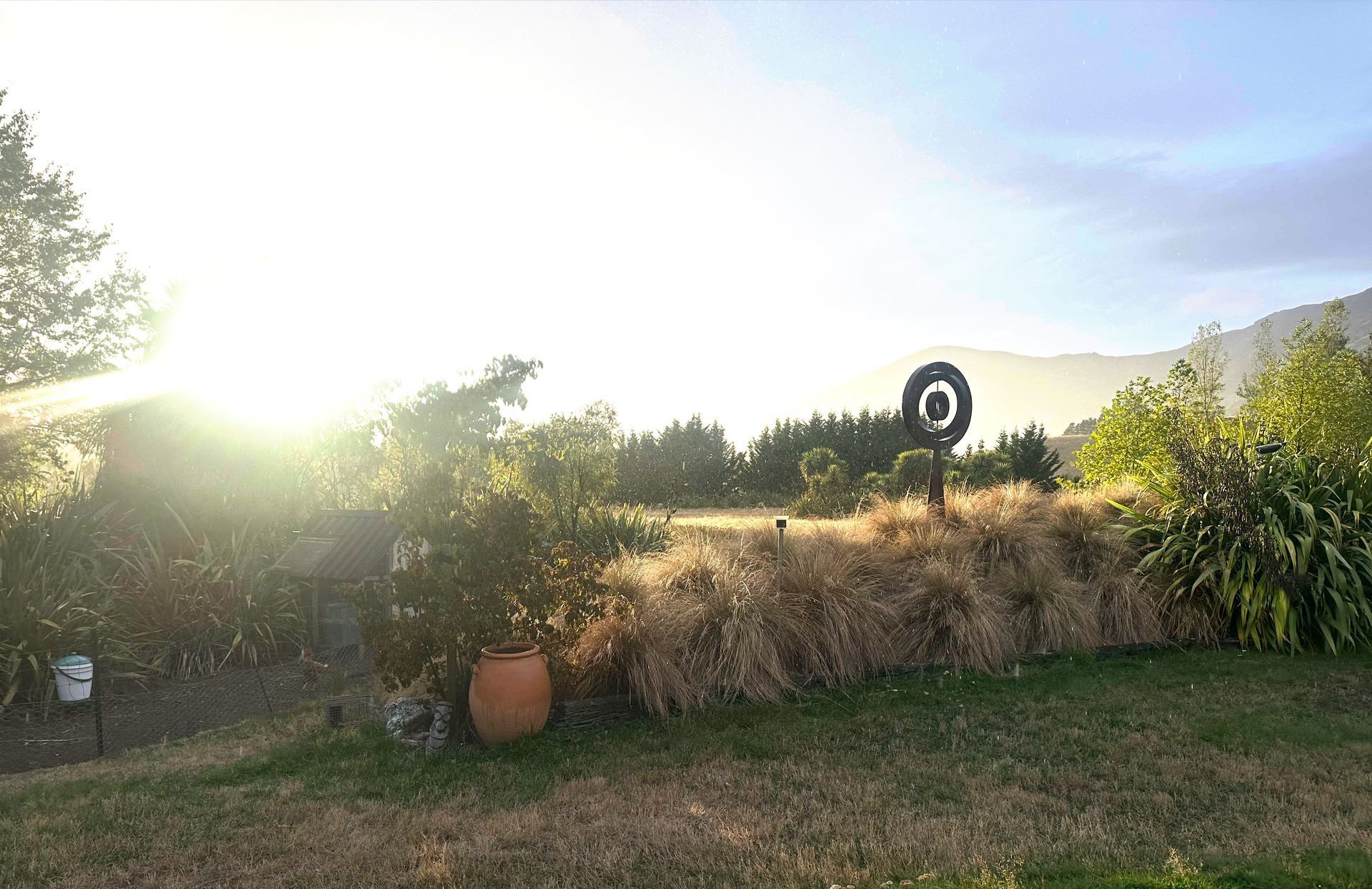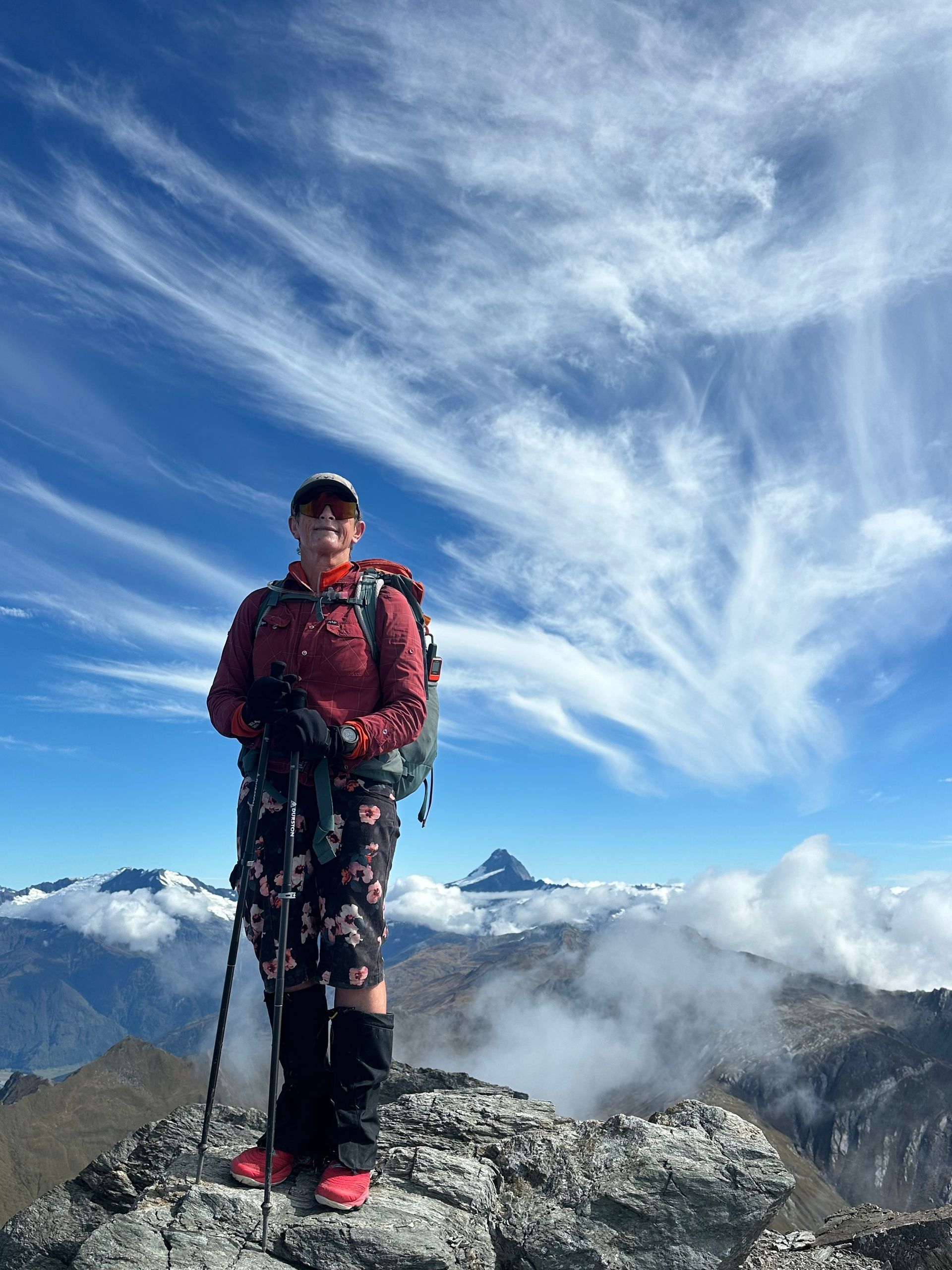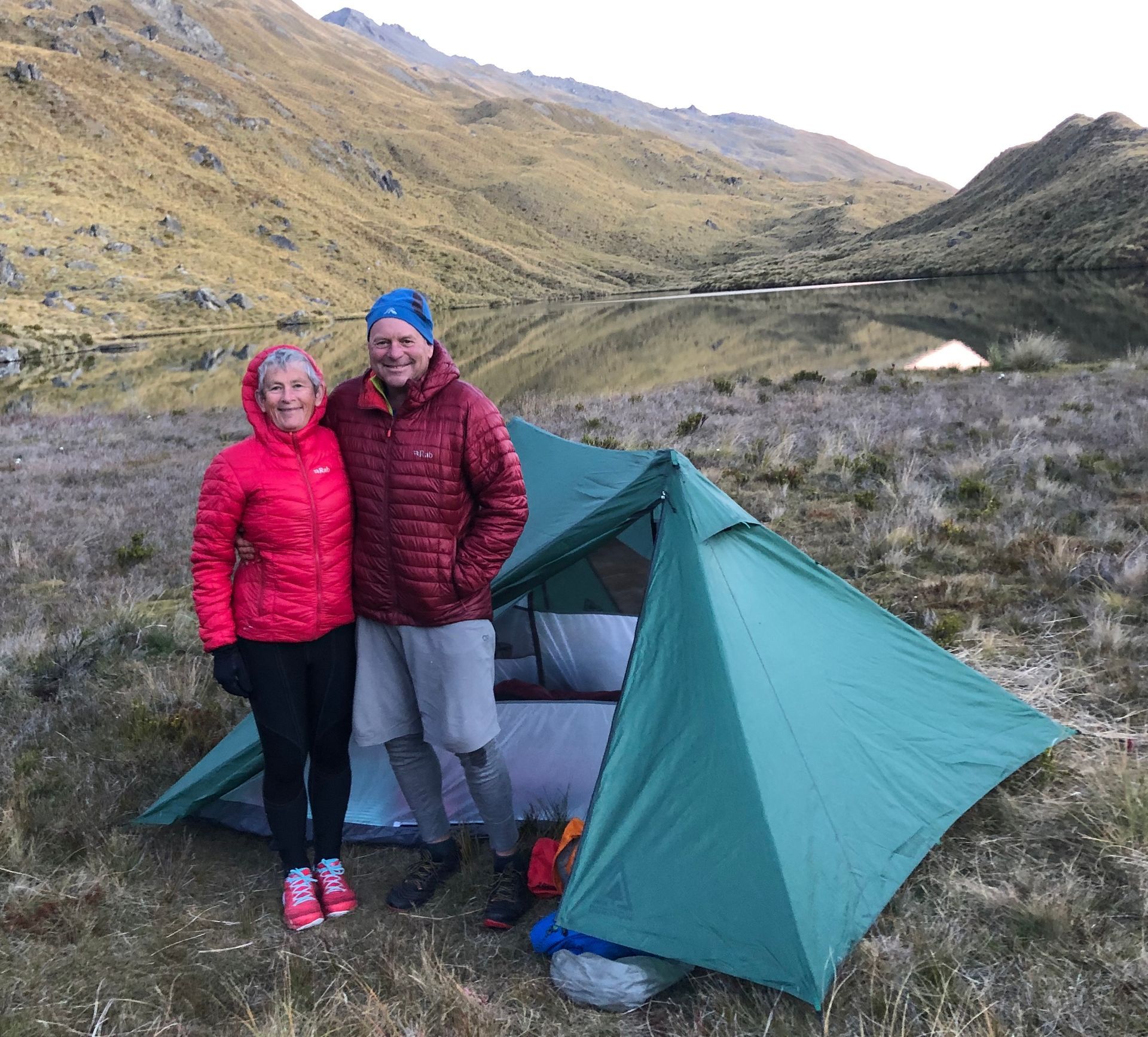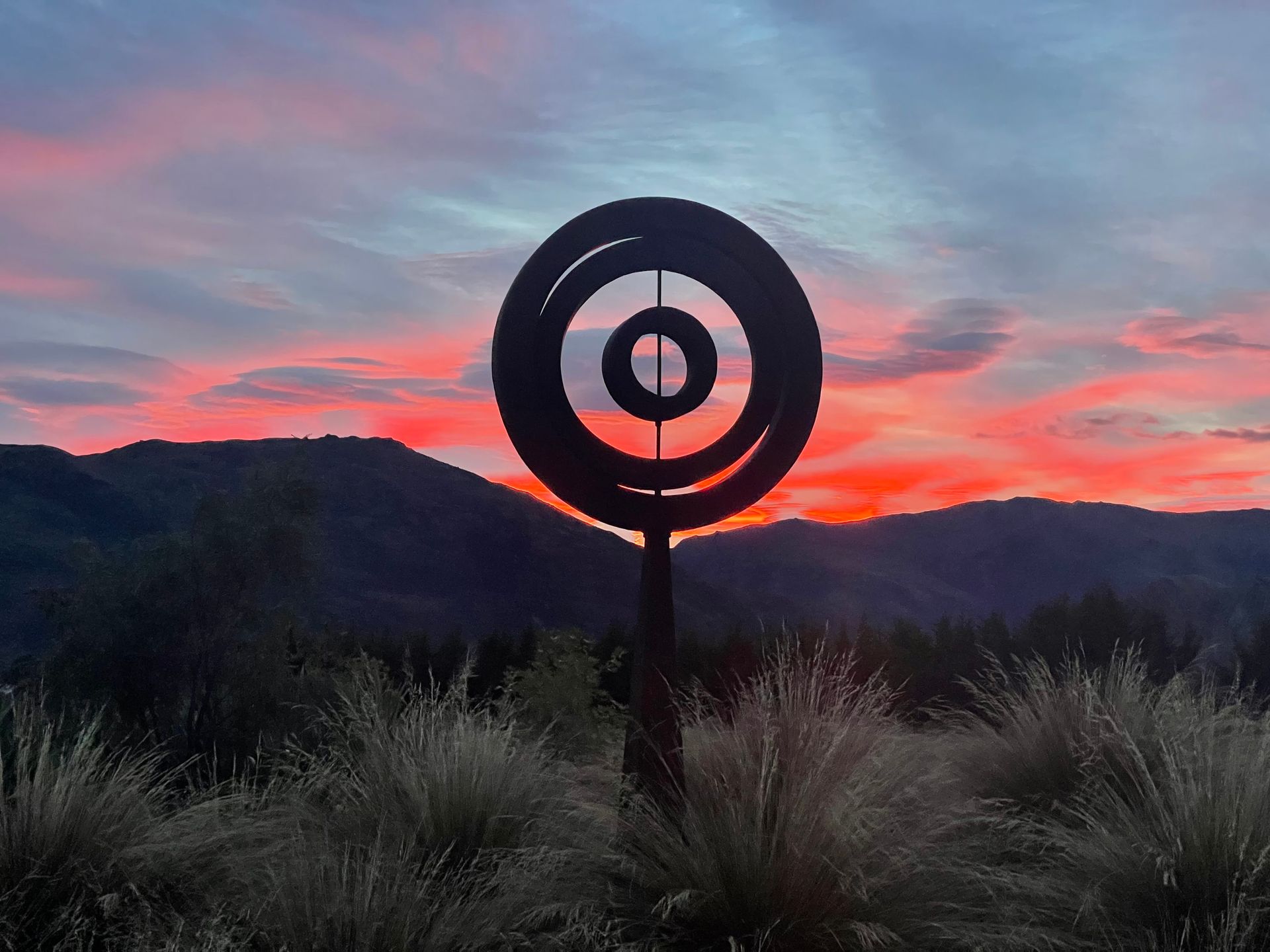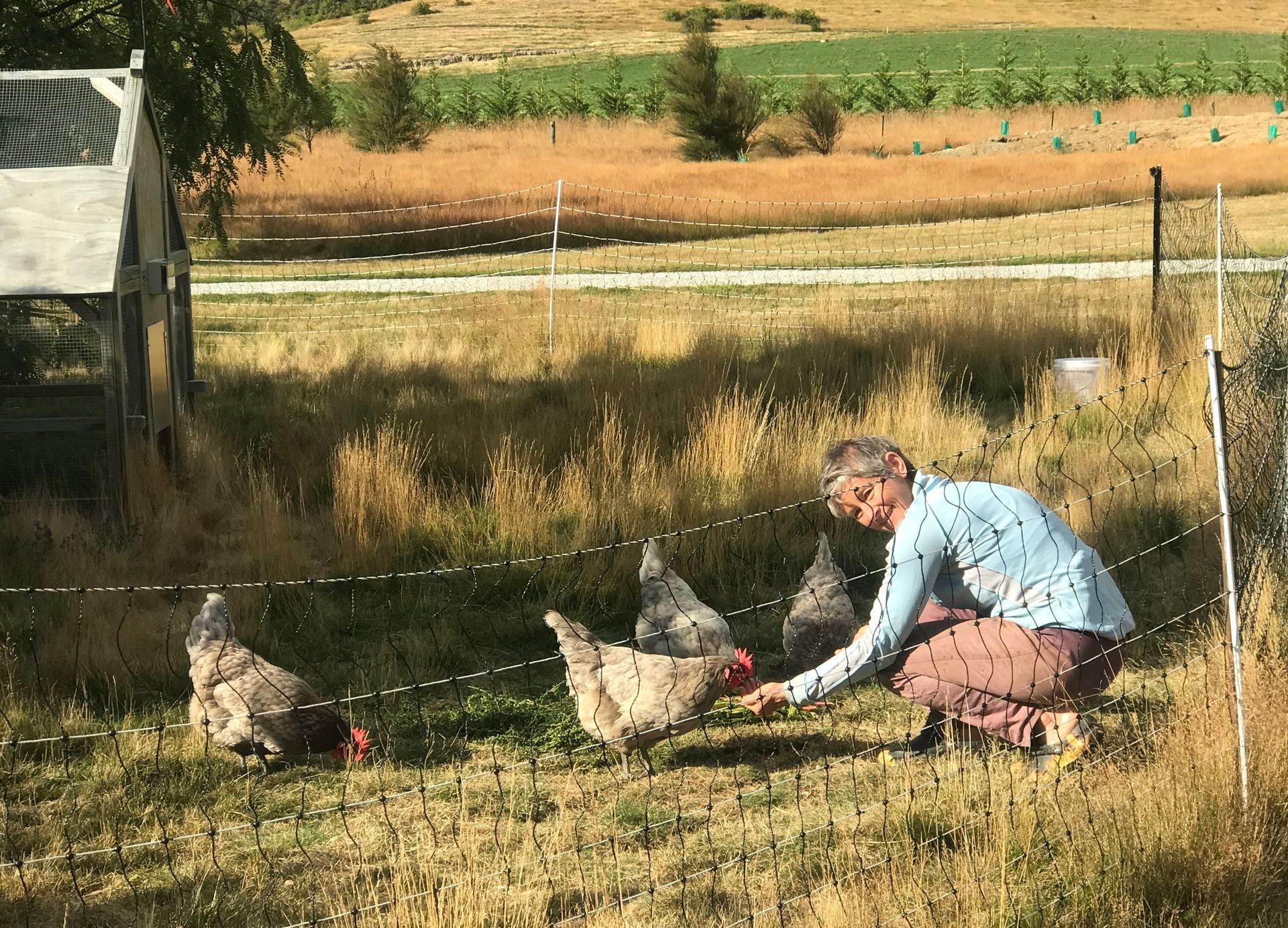Planting Time
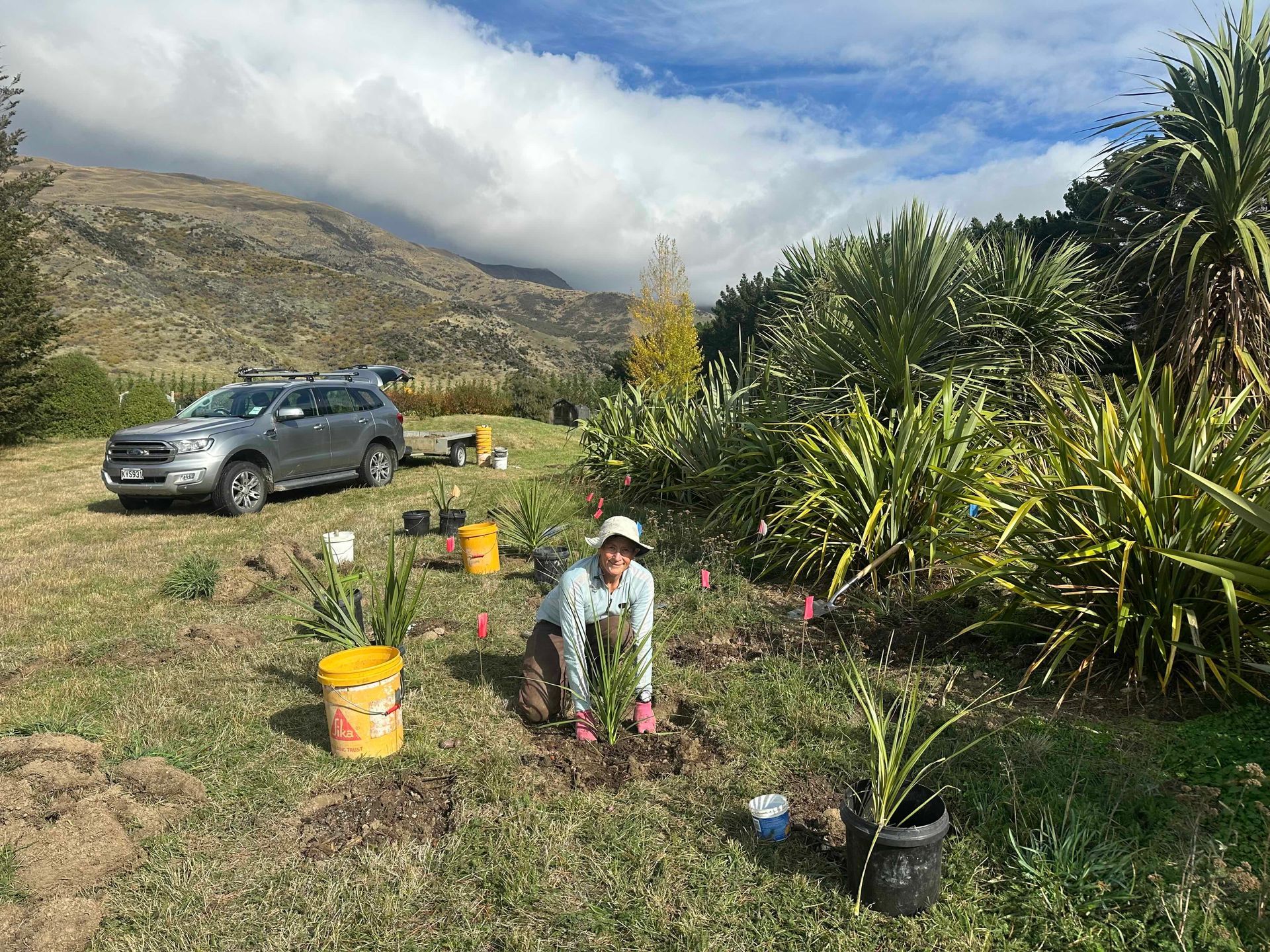
Roberto, a visiting cycle tourist, asked us why we keep planting at pa harakeke. "Because the land needs plants," I said. "Like people need meals."
The need for plants is deeply ingrained in my psyche. At every house I have owned, I have created a garden. This is the first place I haven't managed to subsume all grass into planting – six hectares is too much to entirely subsume, at least in the short to medium term. I assume I inhaled the need to plant land from Dad, who grew flowers in his father's vegetable garden from when he was three and kept gardening throughout his life. He spent the morning of the day he died in his garden – we found his battered green gardening hat on his shed bench; it now hangs in my shed.
At pa harakeke, autumn is planting season. We add at least one new pod of trees – we plant densely in oval pods to minimise the care required when plants are young. The picture below shows a new pod and a 2 year old pod. Planting a pod makes it easy to can mulch the whole area – we discovered a thick layer of mulch speeds up plant growth like nothing else in dry Central Otago summers – and water young plants. I think the rapid plant growth in pods is more than the mulch and water, though. I like to think of plants holding hands – rather than lonely trees isolated by grass swards, our trees share resources and talk with one another (plants signal each other chemically). The exceptions are Lawsons Cypress which repel all boarders – the flax we have planted near Lawson Cypresses on our boundaries refuses to thrive.
As well as new planting, I have been tidying up in the vegetable garden before we go overseas. However, my vegetable garden no longer looks very tidy because I have shifted to a chop and drop approach to dealing with garden waste, together with heavy mulching of small groups of intermingled vegetables, rather than digging and disturbing the soil structure.
Chop and drop is about managing the soil well rather than seeing barren earth as a 'tidy' success. Chop and drop means cutting up dying/dead vegetable matter and dropping it to break down on the earth, rather than taking it away to compost. For example, my beans all keeled over in the first frost, so I cut the stalks off at ground level, left the roots to decompose in the soil, chopped the leaves and stalks up and dropped them where I stood. The green matter will keep the soil warm, break down and feed the soil, and reduces the work required in carting plant material away then returning it again.
I promised a while back to report on whether my small vegetable plots, started a couple of seasons ago, are working out. I don't actually know whether the plants are more productive because I'm not enumerating my successes, but we have more than enough vegetables to eat. One positive I've seen is the number of plants self seeding around the garden – I buy fewer seeds/small plants to achieve a continuous supply of green leafy vegetables, coriander, and spring onions. Self-seeded vegetables pop up and I weed them out if I don't want them, rather than trying to keep the ground clear (which destroys all the germinating seedlings before I can identify them).
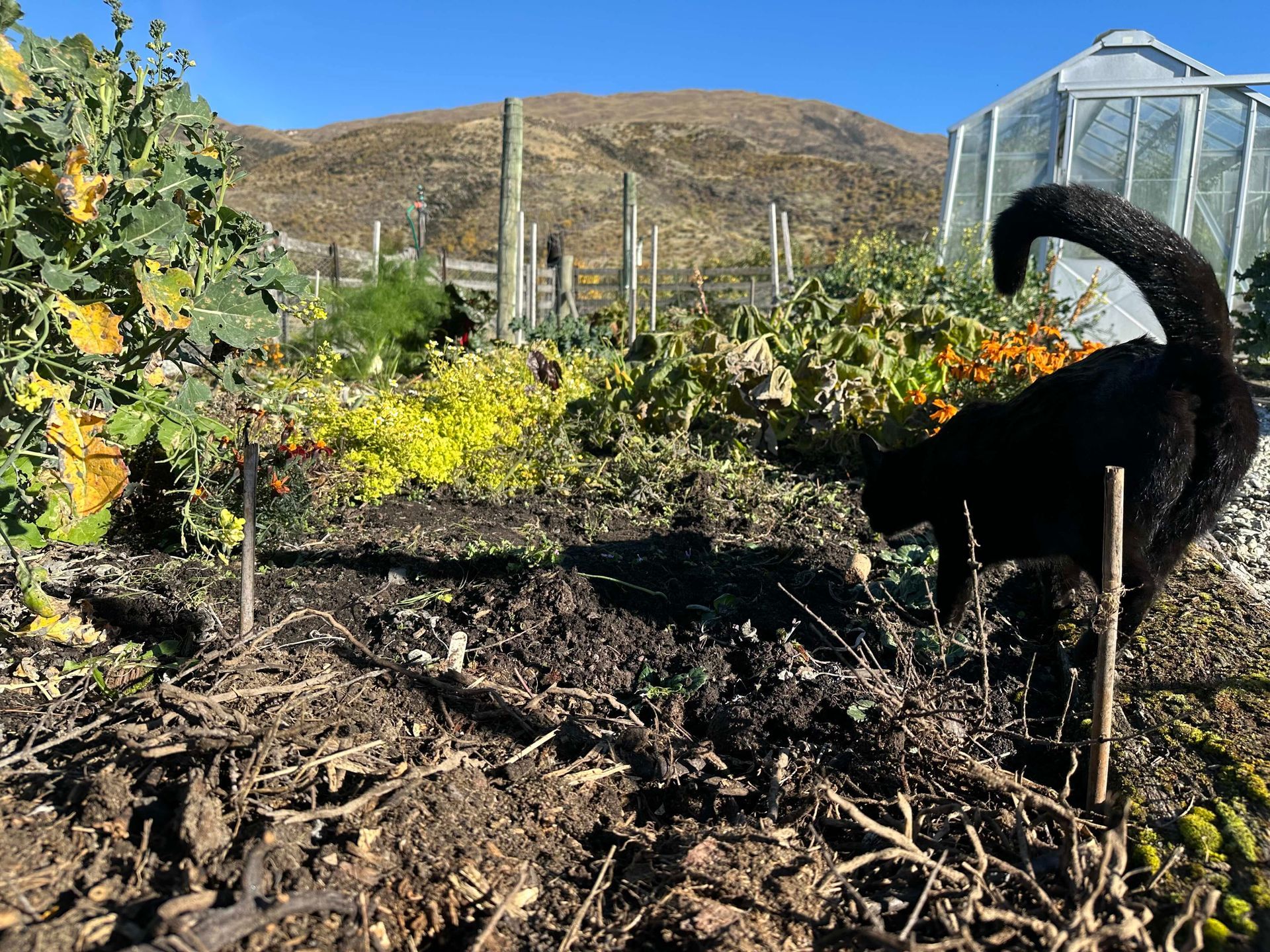
My move away from bare earth in the vegetable garden ties in with a book on the philosophy of conservation my friend Theo loaned me – 'Rekindling Life: a common front' by Baptiste Morizot. Theo and I were discussing the philosophical schism between 'humans' and 'nature' applied in the western world, which underpins our scientific approaches. The concept stems from theoretical separation of mind and body by Greek philosophers – bodies being material and minds being 'other'. This separation, dualism, is significant because the dualistic approach became applied much more broadly in western thinking and our dualistic approach to humans vs nature is central to our destruction of the living systems on our planet.
We refer to 'going into nature' as if we aren't already there. A recent social media post from the Department of Conservation, who you would think should know better, reads, "Students from Massachusetts are researching how people interact with wildlife in New Zealand. Their goal is to create an action plan to better educate the public on the risks of mistreating animals they encounter in nature." Where is 'nature'? Is it okay to mistreat animals we encounter outside of nature (wherever that is)?
We mistake the built environment for 'non-nature'. The mistake is, we are not separate from 'nature', so environments we create are as 'natural' as any other environment affected by the organisms living on the planet. Heehives are 'nature' too, although highly manipulated.
We are not separate from nature because humans evolved in the same four billion year process that created this biosphere. We are as inextricably linked to the biosphere as every other part of the system, at least until Elon Musk takes us off to Mars to live in pods which no longer rely on any support from Earth. I find myself wishing, once again, Musk would take himself off there sooner rather than later.
Because we are part of nature, we need to work with the living systems on the planet for our survival. What is the least manipulation I can do to my vegetable garden environment that results in food for us and habitat for the web of insects, birds, microbes, and plants who produce the food?
Yes, that's right – the web of biota produces food. I do not produce food; I influence what grows but I am not the producer. I can't birth seeds. I can't grow a plant out of my arm. Biological life proceeds around us, despite us. Bare soil grows plants – amazing, when you think about it. A continuous process of renewal in which humans are not necessary.
Our erroneous impression we 'produce' vegetable and animal life has divorced us from seeing the need for reciprocity with our living environment. The web of life consists of two-way interactions between organisms, but many humans see interactions with the biosphere as a one-way street for human benefit. The environment delivers to us and we quantify these environmental 'goods' in monetary terms to supposedly make them comparable to easily quantifiable parts of our economies...
Allied, many humans don't see the wider environment as 'valuable' unless it is returning something to humans (the repeated phrase in the Xinjiang museum of 'Han Chinese taming the wilderness' has always stuck with me'. There is no value placed on humans returning something to the environment in exchange for what they receive.
Dualism pervades every part of our thinking – humans vs nature, left vs right, capitalism vs communism, mind vs body, success vs failure, men vs women, weeds vs plants. Dualism means we can't see shades of grey and miss the critical connections supporting us.
My new gardening motto:
Before I go to clear weeds, first I must consider the seeds I will nurture.
